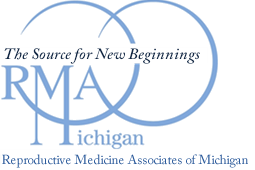PGT-A – Preimplantation Genetic Testing
PGT-A, or Preimplantation Genetic Testing for Aneuploidies, is a genetic test performed on the embryos produced through IVF. It examines the chromosome material of an embryo and can tell if the appropriate number of chromosomes is present. This will help physicians select the best embryo for transfer and improve the chances of achieving a successful pregnancy.
Embryos whose cells have the correct number of chromosomes are called euploid. Embryos whose cells have extra or missing chromosomes or pieces of chromosomes are called aneuploid. Aneuploid embryos are significantly more likely to fail to implant, result in miscarriage, or lead to the birth of a child with a genetic disease, while euploid embryos are much more likely to lead to a healthy pregnancy.
Benefits of PGT-A
- Increases chances of pregnancy.
- Decreases miscarriage rates.
- Increases the chance that a healthy baby is born.
- Reduces number of IVF cycles needed to achieve pregnancy, potentially reducing the time and costs of extra cycles.
- Enables confident single embryo transfer, avoiding health complications associated with twin or triplet pregnancies.
Who Can Benefit From PGT-A
PGT-A is a helpful test for the majority of couples/individuals doing IVF treatment. Depending on the patient’s age, Up to 50% of embryos produced in an IVF cycle are aneuploidy. Chromosomal Aneuploidies are one of the main reasons couples of all ages have difficulty getting pregnant. However, as women age, the quality of their eggs decreases, and the risk of producing an embryo with a chromosomal abnormality increases. This is why women considered advanced maternal age have more difficulty conceiving and a higher rate of miscarriage and birth defects.
PGT-A increases the chances of achieving a successful live birth in all IVF patients. However, it is particularly beneficial in the following circumstances.
- Women over 35 years of age
- Recurrent pregnancy loss
- Previous failed IVF attempts
- Patients who have an inheritable disease they don’t want to pass on to their child
- Patients wanting to feel more confident with a single embryo transfer
